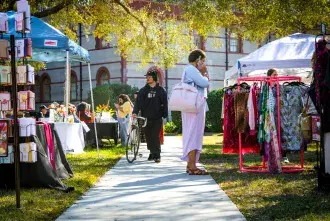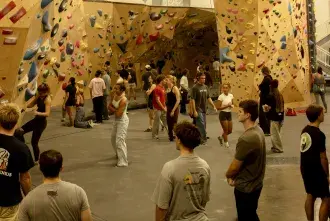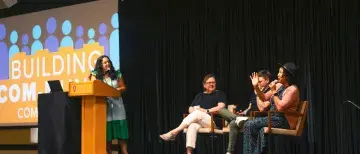
The "Working in Film & Video Today" provided a platform for four remarkable northeast Florida Women in Film and Television (WIFT) members who spoke about the beginnings of their careers and the challenges they overcame to reach their current positions. Designed for aspiring filmmakers and those seeking new opportunities in the industry, the panel began with energetic and inspiring speeches from the featured panelists:
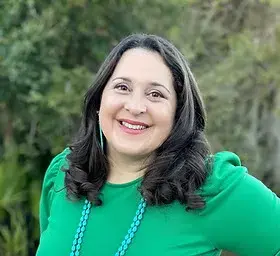
Janeen Sara (‘95)
Jacksonville Chair of Women in Film and Television Florida, with six years of experience in screenwriting and producing for companies like Universal Studios and NBC.
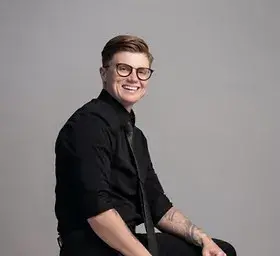
Keagan Anfuso
A filmmaker and Creative Director at Kennetic Productions; has 12 years of experience in documentary and commercial storytelling and serves as Video Producer for TEDxJacksonville.
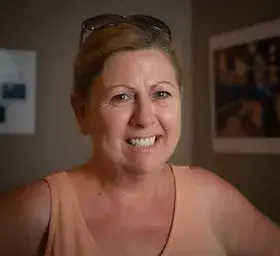
Kay Hill
Owner of Florida Film Academy with 30 years of experience creating content for global networks like National Geographic and Netflix; a Fellow of the Royal Society for the Encouragement of Arts.
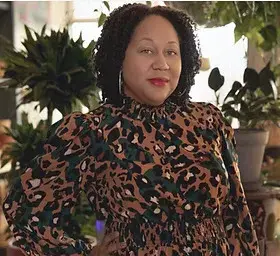
Monique Madrid
The first black female film festival organizer in Jacksonville with the LOL JAX Film Festival; Co-Producer of the Jacksonville 48 Hour Film Project and has earned recognition from Jax Business Journal.
As I listened, my thoughts turned to fellow Afghan women who, unlike these women, no longer have such opportunities. Of course, this hasn't always been true. Growing up in my home country, it was always alongside my mother's lifelong passion for the arts. In fact, she was among the first to bring attention to children's media in Afghanistan and has worked as an entrepreneur, writer, director, and advocate for women's and children's rights.
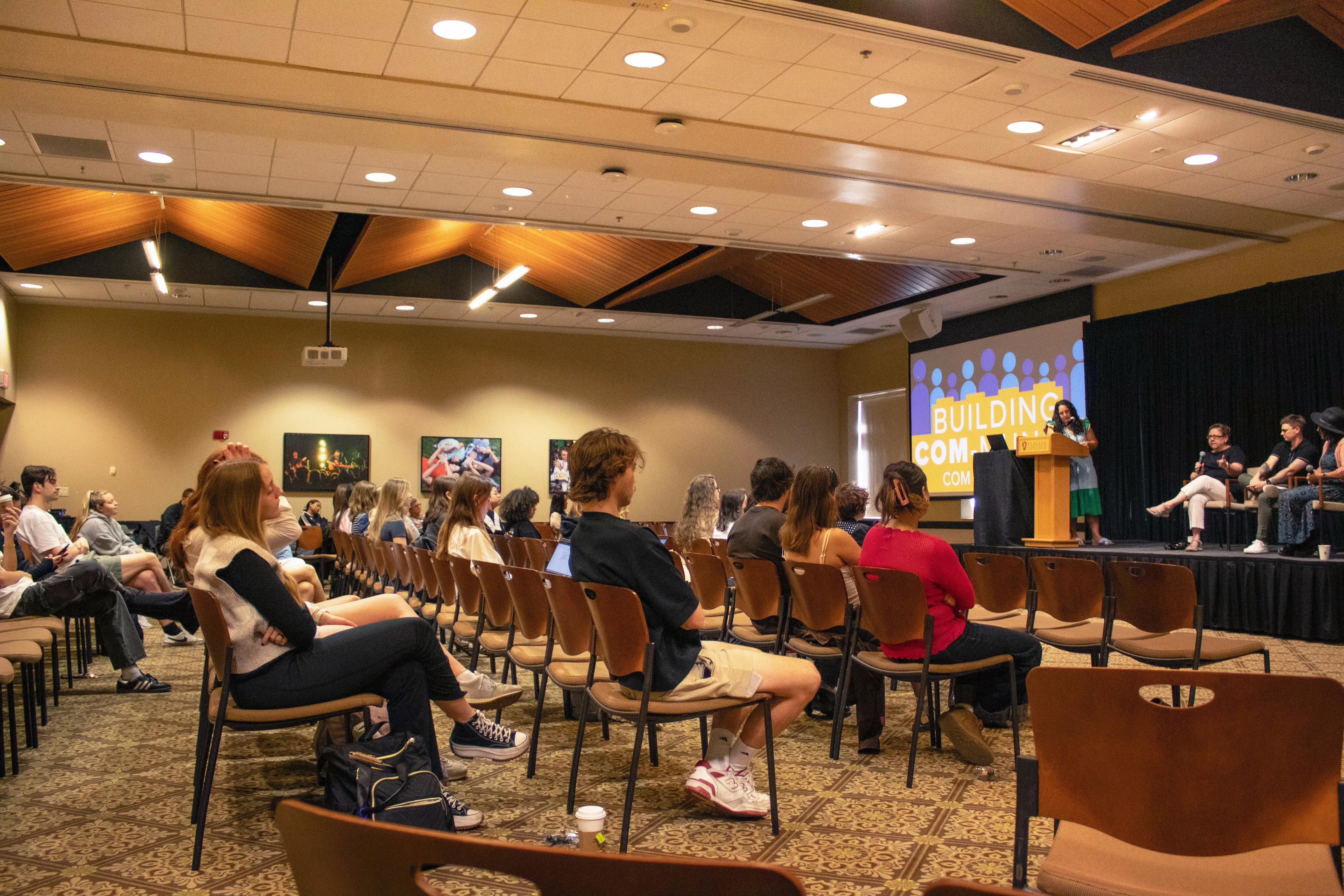
Today, women in Afghanistan are not only denied the chance to make films but are also deprived of the basic human right to imagine a different future. For them, the act of creating and dreaming is a distant fantasy. This stark contrast made the insights shared by the panelists even more poignant and inspiring.
Monique Madrid, one of the co-producers of the 48-Hour Film Project, was someone I had the privilege of meeting during the event. For me—having participated in the competition twice—it was an exceptional opportunity to learn more about her journey and aspirations.
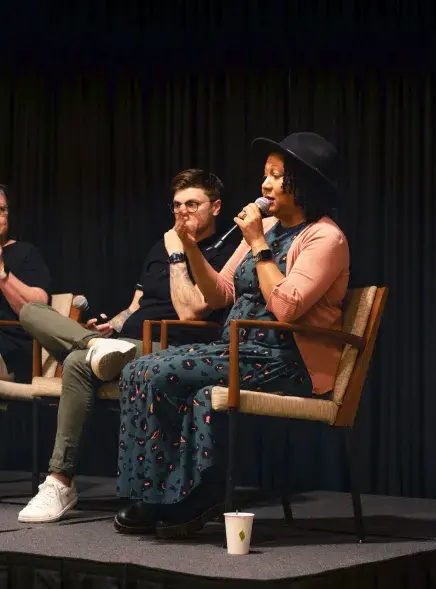
I was particularly intrigued by how she started her career in the industry: alongside her husband, she initially entered the field as a wedding DJ and videographer. Madrid emphasized the crucial role of film festivals in helping young filmmakers gain recognition:
“Film festivals are sometimes the only vehicle that these young filmmakers have to get their work seen,” Madrid said.
The panelists spoke about the significance of networking in the film industry, stressing that building professional connections and collaborating with others could significantly smooth one’s path.
“You never know who is watching your films and what doors that could open for you,” Madrid added.
A particularly thought-provoking discussion centered on the difficulty of breaking into the industry. Contrary to common belief, this path is neither smooth nor easy. Anfuso shared her insight on what truly makes a difference in navigating this challenging journey. She believes that passion for a cause is key to perseverance in the industry.
“Find that thing that makes your blood boil, find that thing that lights you up,” Anfuso said.
Emphasizing that while entering the field has become more accessible than in the past, it still demands relentless effort and determination.
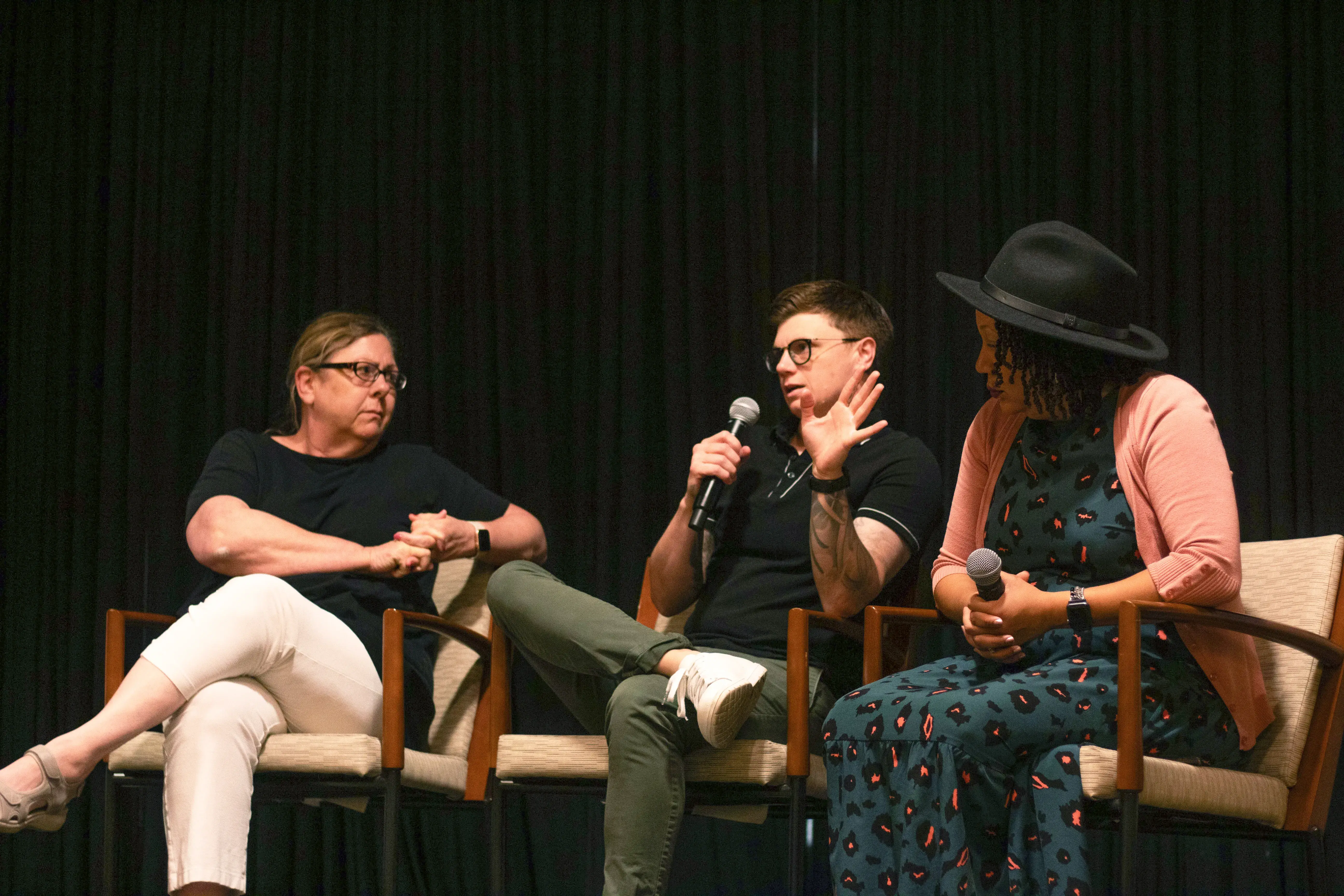
One key takeaway that lingered in my mind was the necessity of action over mere ideation—starting early, gaining experience, and refining one's craft. Hill stressed the importance of capturing attention within the first fifteen seconds:
“If you can’t grab the attention of network executives or investors in 15 seconds, you don’t even need to book a flight to New York,” she said.
She also highlighted the crucial role of marketing skills in the media industry, explaining that directors and producers must know how to pitch their ideas in a compelling and concise manner. According to her, aspiring filmmakers should make use of every available opportunity, even in overlooked areas of the industry, to carve out their place.
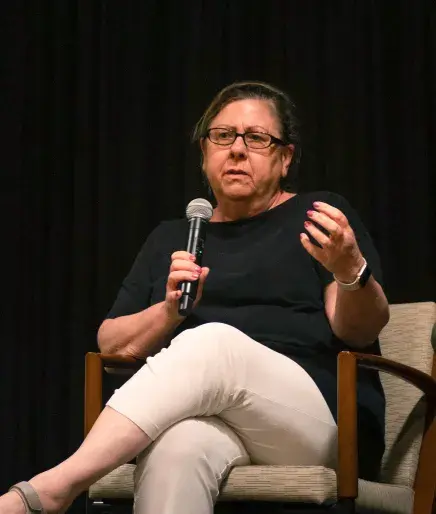
“If your job is to bring coffee, do it with the highest level of excellence," Hill said.
This statement stayed with me, as its meaning extended far beyond merely accepting minor tasks; it underscored the value of dedication, commitment, and professionalism in every given opportunity.
“This is not the industry for a person who’s waiting for things to happen to them.” Sara said, “If you don’t have that drive, that passion, that ambition, this is going to be a really difficult task for you because it’s not for the faint of heart.”
As I listened to these women recount their struggles in the film industry, my thoughts turned again to the Afghan women whose stories remain untold. Their voices, lost in the void of enforced silence, deserve to be heard and celebrated. Attending this event felt like more than just a professional experience; it felt like a mission—a duty to tell the stories of those still trapped behind closed doors.
This panel was not merely about film; it was about courage, resilience, and the creation of a future where all women, regardless of borders and limitations, can bring their narratives to life.
